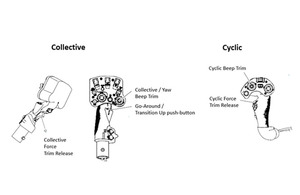Career Insight: Amy, Legal Trainee, Government Legal Department
“After completing a degree in Spanish and English Literature, I knew that I wanted a career that combined my interests in international relations, law and policy; that was fast paced and exciting; and full of different possibilities and outcomes.
However, I also knew that I did not have family members who were lawyers or any connections in the legal sector, nor had I undertaken legal work experience from when I was 14 years old. After the final year of my degree, I was not only absolutely exhausted, but at a complete loss of how to actually go about embarking upon my dream career.
And so, I started from where I could: I applied for any and all opportunities that could further my career aspirations, whilst living with family and working part-time in hospitality. I undertook various brief stints of unpaid voluntary work and then writing articles for an online news blog for young people.
It was only in the summer of 2019, a whole year after I had graduated, that I realised that the Government Legal Profession Legal Trainee Scheme offered not only the chance to work on the type of law I was interested in, but also included sponsorship of the LPC (without which I simply would not have been able to fund).
But with thousands of applications for fewer than 60 positions, I honestly did not think that I would ever be lucky enough to be selected for a training contract with the Government Legal Department (GLD). Yet, the way in which the GLD recruits is unique: by reducing the capacity for individuals to highlight the school they attended, the degree result they achieved, and the previous work experience that some people may have, it really does feel fair and transparent. The emphasis instead is on your ability to make effective decisions, communicate and influence, work together (with others) and deliver at pace. It is on the skills you possess and the ways in which you behave, and not on what you degree result you achieved or secondary school you went to.
When I was first offered my training contract, it felt as if I had been handed a golden ticket, and to a large extent, I still feel that way today. My first year training with GLD has comprised of two six-month seats in public law and private law litigation, serving a range of clients from the Ministry of Justice, Department for Education, Department for Transport, Department for Health and Social Care and Department for Work and Pensions. I have attended numerous hearings, some of which have been extremely high profile with leading barristers instructed on both sides, and I have had the opportunity to take the lead on my own cases. I have greatly enjoyed the level of responsibility that GLD entrusts to its trainees from Day 1, the high-profile nature of the work, as well as the continual focus of learning and development. In all honesty, I simply cannot conceive of a better place to train as a lawyer.
I truly believe that I have found a career that combines my interests in international relations, law and policy, that is fast paced and exciting, and that is full of different possibilities and outcomes, and for that, I could not be more thankful.”
